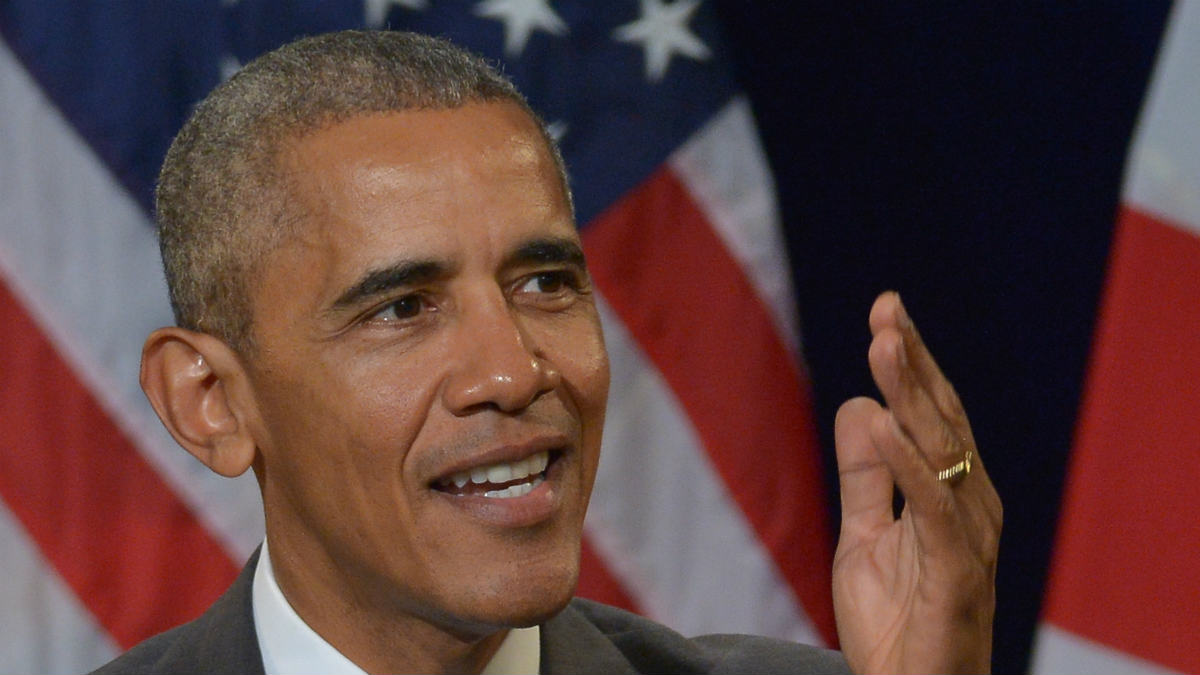
Will Republicans Help Obama Fix Obamacare?
After years of denial and outright lies (“If you like your plan, you can keep it!”), President Obama has recently been forced to acknowledge that his signature law has some big issues — and he’s asking Republicans to join him in fixing it. Only half-joking, Obama quipped at a Hillary Clinton campaign event:
They can change the name of the law to “Reagancare,” or they can call it “Paul Ryancare.” I don’t care about credit. I just want it to work!
And regardless of who controls the White House or Congress in 2017, Republicans may well oblige him. Fixing Obamacare, that is, not calling it “Reagancare.”
Many Republican politicians continue to insist they support repealing and replacing Obamacare. Repeal and a fresh start is what ought to happen in a sane world, given that even Democrats who helped pass the law acknowledge it’s a “trainwreck”.
But given that many Republican leaders never truly supported repeal in the first place, when the effort to merely patch up Obamacare begins, a great many of the GOP will assuredly (feigning reluctance) go with the flow.
The shift from “repeal” to “fix” came early, with Republican leaders warning even before the law came into full effect that Obamacare was “the law of the land” and that we can only hope to work around it. Even the one bold stand Republicans took against Obamacare, resulting in a protracted government shutdown in 2013, was undercut by GOP leadership from the start and accomplished nothing.
What many Republicans and conservatives appear to fear even more than Obamacare is disruption in the health insurance markets. Indeed, they might be said to agree in large part with a very salient observation Hillary made in the second presidential debate:
Look, we are in a situation in our country where if we were to start all over again, we might come up with a different system. But we have an employer-based system. That’s where the vast majority of people get their health care.
The entire health insurance market is organized around a government-altered structure, caused by the massive disadvantage in the cost of individual health insurance versus employer-provided benefits, which are tax-exempt.
Insurers sell the majority of their policies via employers and groups, and middle-class Americans in particular, have become accustomed to getting their benefits this way over several generations. Thus politically, there is a massive incentive to fill the gap in coverage for individuals by just finding the least painful way to give government subsidies in the individual market.
Trying alternative solutions — like letting market forces actually work in health care — would bring a torrent of angry insurance lobbyists to Congress, worried that new policies might endanger their market share.
And, of course, voters are nervous about change as well. For the majority of folks, the current screwed-up system works just tolerably well enough that the prospect of moving away from it in a fundamental way is daunting.
Never mind that just getting everybody on an insurance plan does next to nothing in terms of actually making health care more affordable. In fact, the better and lower deductible that insurance coverage gets, the more it encourages people to overconsume health care services and to ignore the costs because they don’t pay them out of pocket anyways. The price of health care then becomes a struggle between insurers and hospitals and doctors, all deciding how much services will cost in a process patients never see.
Instead of focusing on lowering actual health care costs and improving patient outcomes, even most conservative solutions are more focused on just increasing Americans’ dependence on the third-party payment structure — whether by the government or by insurance carriers. It’s not their intention, perhaps, but if your goal is merely “universal coverage,” that’s the inevitable result.
But attaining ‘insurance for all’ is easier for politicians to sell than removing government shackles from the health care industry and letting market forces do their work.
Moving forward, I’ll be writing about alternatives to the third-party payment model and about how conservatives should focus on allowing patient choice and innovation in the health care marketplace.
The only way out of this broken health care mess is though choice and competition — not just competition within government-managed insurance markets, but competition with the entire insurance model itself.
This article originally appeared on Conservative Review.
Free the People publishes opinion-based articles from contributing writers. The opinions and ideas expressed do not always reflect the opinions and ideas that Free the People endorses. We believe in free speech, and in providing a platform for open dialogue. Feel free to leave a comment.



